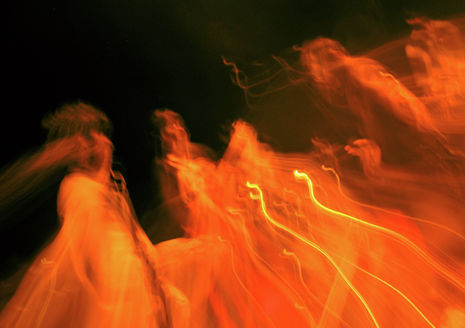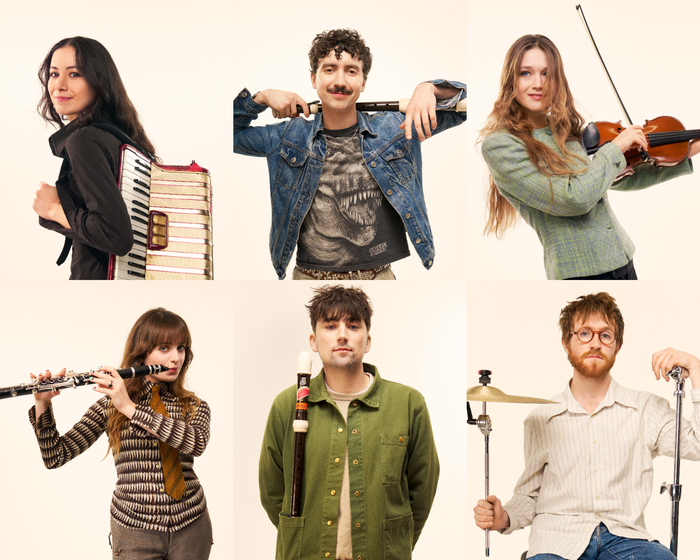Maybe you’re gonna be the one that pays me
Ruby Wooller critiques Ticketmaster’s tyrannical grip on the live entertainment industry

When country rapper Kid Rock declared “Make America Fun Again” in the Oval Office, he headlined Trump’s legislative progress with a new executive order signed to shield live music fans from “crazy ticket prices”. With the news on one tab, and the purgatory of LiveNation checkout on the other, it seemed momentarily the President really had his finger on the pulse. But while the order, signed in late March, intended to crack down on scalpers and hidden fees, it mainly reiterated existing laws without introducing new regulations or price caps.
The move reflects growing frustration with industry giants like Ticketmaster, the world’s largest ticket seller, blamed for unmistakably price-gouging customers. The company has become a lightning rod for resentment as a result of the extortionate cost of live events which research commissioned by Barclays has tied to the explosion of the ‘Experience Economy’.
“Ticketmaster’s handling of the Oasis comeback proved you can absolutely put a price on nostalgia”
Ticketmaster’s handling of the Oasis comeback proved you can absolutely put a price on nostalgia. The strategy of dynamic pricing – letting ticket prices surge with high demand – meant many fans were asked without warning to pay over £200 more than had been advertised for standard tickets. Prices on all sites reflected insatiable demand but when it comes to these undisclosed added costs you would be tested not to look back in anger. Ticketmaster has however denied using dynamic algorithms to adjust ticket prices. Earlier this year, the company’s UK managing director Andrew Parsons told the the UK’s Business and Trade Committee that the price of tickets on the site “is the price that the artist has worked with us to determine is the price that they want it to be set”.
Big name artists have the technology at their disposal to scale concerts into pyrotechnical oblivion or, leveraging nostalgia, strip back stages into effective time machines. Oasis fans prioritised the latter: with Cool Britannia a hallowed memory, things could only get better for Ticketmaster. But even with £217 million spent on tickets, it remains to be seen if the band can recreate the mythologised atmosphere of Knebworth in 1996 which still holds the record for the largest ever demand for concert tickets in British history.
In keeping with the canonically raucous ‘salad days’ of Britpop, Noel Gallagher told Desert Island Discs that “I know it took place because there were lots of people there”. A primary source, my Dad, who branded the event ‘Our Woodstock’, recollected that Liam Gallagher entered the stage and first addressed the crowd with “Teapot, coffee table, sofa”. This is the kind of rugged authenticity you might not get at Wembley, with the inventory list more likely to consist of glossy hospitality packages, a signature Stone Island parka or Lennon-style shades, perhaps watermarked Manchester City merchandise if you’re really lucky.
The growing number of ‘Platinum’ VIP deals and dynamically priced tickets eat away at the available general sale tickets and capitalise on high demand, often pricing out real fans. Proceeding past the wheel of doom at checkout, the frenzied identification of school buses only to be misidentified as a bot, fans still hazard sitting in a virtual queue with no end. Maybe this is the spiritual price you pay for a stake in a cultural spectacle.
“Artists are increasingly products to sell and fans will pay sky high prices for access to them”
Technical blunders clumsily epitomise that the ticket selling industry itself is not consumer friendly. Nowhere was this more evident when in November 2022 Ticketmaster failed to stagger the presale for the USA leg of Taylor Swift’s Eras Tour, crashing the website and leaving many fans empty-handed. Following this, the company blamed a cyber attack for the debacle, apologising to Taylor Swift and her fans.
Tim Chambers, a past employee of the company called it “the 800lb gorilla that everyone loves to hate”. In fact, soon after Swift expressed her disappointment, the company was sued by the Biden administration. Cut to 2025, they are embroiled in an antitrust lawsuit alleging unlawful business practices.
So how can we curb astronomical ticket prices amid growing demand? Can the blame be loaded entirely on one company? Ticketmaster’s monopoly on ticket distribution has spearheaded the increasing inaccessibility of popular live events. However, it has exploited conspicuous long-term trends: artists are increasingly products to sell and fans will pay sky high prices for access to them. One fan listed the contact lenses through which they watched the Eras Tour on Ebay for ten thousand dollars – a joke, but a telling one.
The Cure’s Robert Smith argues artists can push back by avoiding ticketing platforms with exclusive venue deals that levy hidden surcharges on the consumer. Nirvana-style eighteen dollar tickets may be a thing of the past but more transparency and competition could level the field.
While Keir Starmer vowed to ‘get a grip’ on surge pricing, FIFA is set to adopt dynamic pricing for the 2026 World Cup, likely to result in a huge tax payout for the government. Luckily May Balls haven’t adopted the system just yet; the Cambridge bubble appears intact. The flourishing secondary market, Ticketbridge, remains open for resale tickets, albeit with prices that characteristically blur the line between entrepreneurial spirit and opportunism.
 Comment / The (Dys)functions of student politics at Cambridge19 January 2026
Comment / The (Dys)functions of student politics at Cambridge19 January 2026 Arts / Exploring Cambridge’s modernist architecture20 January 2026
Arts / Exploring Cambridge’s modernist architecture20 January 2026 Features / Exploring Cambridge’s past, present, and future18 January 2026
Features / Exploring Cambridge’s past, present, and future18 January 2026 News / Local business in trademark battle with Uni over use of ‘Cambridge’17 January 2026
News / Local business in trademark battle with Uni over use of ‘Cambridge’17 January 2026 News / Your Party protesters rally against US action in Venezuela19 January 2026
News / Your Party protesters rally against US action in Venezuela19 January 2026









